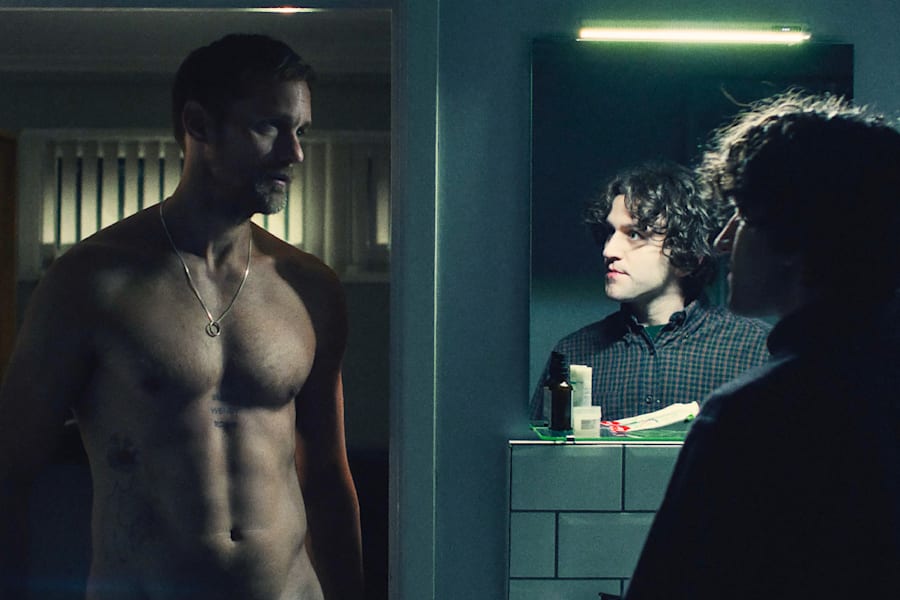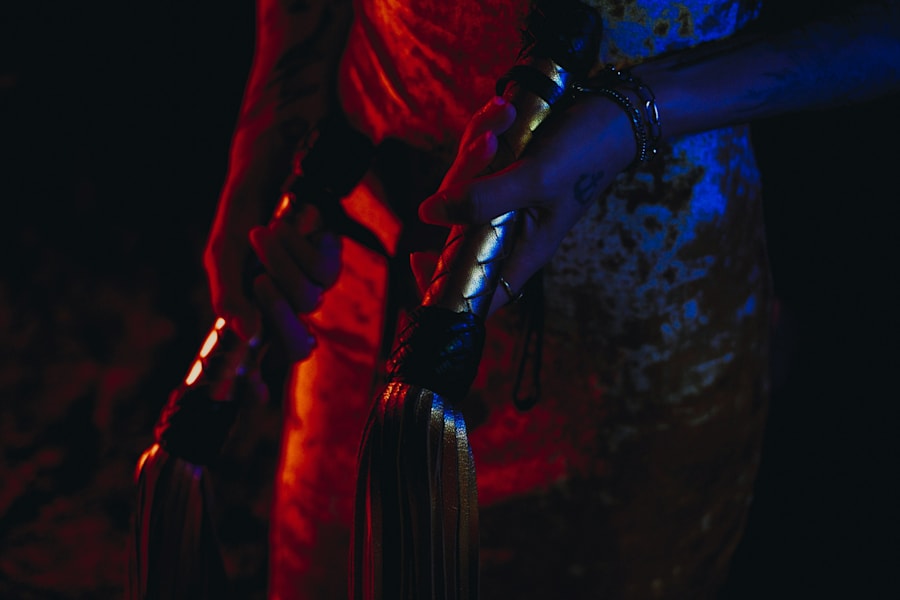
Loves me. Loves me not. Are you wondering what they’re doing and if they’re thinking about you? Mentally tallying all of their green flags? Daydreaming about your next date? The flutters of new feelings and the euphoria of fresh, exciting infatuation can feel like a fairytale.
Whether you’re looking for something committed, something open and fun, or something in between the early stages of dating will definitely keep you on your toes. From having butterflies in your stomach and feeling all hot under the collar, to evolving expectations and waves of uncertainty, it’s all part of the ride.
You might meet someone who ticks all the boxes on paper, but still find that something is “missing.” The person you want to date might want to date multiple people. You might get chatting to someone and have a great time during “the talking stage” but find that the chemistry doesn’t align IRL—and that’s totally okay. Not every person is dating to get into a relationship and not every connection needs to lead to something long-term. This is where boundaries and clear communication come into play.
These early stages are about enjoying the process; getting to know yourself, the other person, and what feels good. It’s a time for fun, exploration, and figuring out what works for you both. As you move through the early stages of dating, staying open, communicating clearly, and setting boundaries as you go will help you both feel comfortable and supported. No matter what direction things go in, these early stages of dating can really shape your experience. So, let’s get into it...
Understanding the early stages of dating
No two people are the same, so deciphering connections or specific stages of romantic relationships can be difficult. However, there are some common themes during the early stages of dating that many people experience. Let’s explore them…
The first date
First things first: bagging yourself that first date. Though exciting, the initial steps of a potential new relationship are arguably the biggest obstacle to overcome—they might even come before your first date. Many of us find the initial “Do they like me or not?” debacle too awkward to pluck up the courage and ask in the first place.
But once you’re in, you’re in. So try and relax. If you tend to be filled with self-doubt before a first date, it’s useful to remind yourself that these scenarios can be anxiety-inducing for both parties. You may also be burned from previous experiences, which have led you to keep your guard up. Try to go in with an open mind (and heart) and be your genuine self, or as much as you can be on a first date.
First dates are all about getting a sense of what someone is like, but nerves can easily get in the way. Professional matchmaker and relationship coach, Nora DeKeyser suggests: "Always go on a second or third date because most people don't represent themselves fully in the first few dates. After this stage, things get less awkward and you can finally start feeling comfortable around the other person."
Think of a first date as a vibe check rather than the be-all and end-all. It’s just an initial glimpse, not the whole story, so don’t rush to judge a book by its cover. Giving yourself and the other person the space for a few dates can help you get a truer sense of who they really are.
The “getting to know you” stage
So you’ve been on a few dates? Welcome to what we like to call the “sussing” stage. Navigating this hazy time can be tricky. You and your prospective partner may still be keeping your cards close to your chests, walking the tightrope between showing casual interest and not seeming “too available.” You may find yourself overthinking texts, analyzing their behavior, looking out for red flags, and essentially, sussing each other out.
You may receive an influx of conflicting advice from friends during this period but don’t forget that everyone’s dating style is different. Whilst some couples race through casual dating and become official in a matter of weeks, others like to take it slow and it could take months before reaching the “what are we?” conversation.
Take it from a serial dater herself, Carrie Bradshaw, who after a year of back and forth with Big, observed: “There’s only one pink toothbrush head and Big was giving his to me. lt was the single most encouraging moment so far in our relationship.” For Carrie, getting her own designated toothbrush at her boyfriend's house was a very big deal—even though her friend got engaged after only six weeks of dating. So whether you’re a Carrie or not, the best thing to do is to march to your own beat. When you know, you know, and all that…
The honeymoon stage
Ah, the honeymoon stage, full of fuzzy feelings and googly eyes. If real life was ever a rom-com, this would be it. This exciting stage is all about exploring your intense attraction and the thrill of physical intimacy. Couples are often blinded by infatuation and you may find yourself constantly thinking about them and wanting to spend every second together.
But be warned: the honeymoon phase is called a “phase” for a reason; it’s just that. But there’s no time limit as to when the rose-tinted glasses come off, so the best thing to do is enjoy it while it lasts because—let’s face it—it’s quite nice.
The deepening stage
For every exhilarating honeymoon period, there’s the shift toward more everyday, grounded moments. It’s not about the loss of that initial spark, but rather about moving into a deeper, more meaningful connection.
During this time, doubts may surface and differences can become glaringly obvious. You might start nitpicking at your partner’s actions or identifying “icks.” The wise folks at Forbes advise that it’s “imperative not to draw hasty conclusions.” Instead, “view this stage as an opportunity for growth—a testing ground for the resilience of your relationship, laying the foundation for the journey ahead.” Watch this space…
The defining stage (or whatever feels right)
After you've been dating for a little while, things start to feel more comfortable. You're spending more time together, enjoying each other’s company, and maybe the “what are we?” conversation is starting to feel more natural.
But here’s the thing: there is no one-size-fits-all and you make the rules. "Commitment" can look different for everyone. Some people might want to be exclusive but still keep dating around, others might be ready to dive into a relationship, or maybe you’re both open to exploring other connections—whether that means doing so together or separately. The most important thing is that you’re both clear about what you want and that you're open and honest about how things are moving forward.
Green flags in early dating
When it comes to the early stages of dating, it's almost too easy to reel off your red flags and reject a potential connection before you’ve even grabbed a drink. But what about the green flags?
Couples therapist, Larissa House adds: “Green flags are anything that indicates that the person and the relationship dynamics have the potential to be safe, enjoyable, and healthy, and have what it takes to turn into a great partnership.” Essentially, green flags can act as invaluable benchmarks to help us find that special someone. To name a few:
- Clear and open communication
- Good listening
- Trust
- Honesty
- Respect
- Healthy boundaries
- Shared values and goals
Choosing Therapy argues that green flags are “just as important as red flags,” as “the more healthy behaviors a relationship has, the more each individual will benefit from the relationship.” So, next time you find yourself listing off all the negatives, why don’t you try taking note of the positives?
Beware of love bombing
Sorry to burst your greener-than-green bubble, but it’s important not to mistake love bombing for, well, love. So what might love bombing disguised as green flags look like? Women’s Health writes “Maybe your partner can't stop reminding you how perfect you are together, or how your love was destined to be… but it’s only been a few weeks since the relationship started. Maybe you notice how kind your partner has been lately, buying you gifts and taking you out; but you also notice yourself spending less and less time with people outside your relationship.” If any of these behaviors ring alarm bells, take heed: “your partner's overly-amorous expressions may leave you feeling grateful for having someone who cherishes you so dearly, yet questioning if your relationship is moving too fast.”
This is where things can get tricky and you could get drawn into a toxic or potentially abusive relationship. At the very least, you could risk having an imbalanced relationship. It’s important to acknowledge the infatuation and assess your own attachment style before falling headfirst for grand gestures.
How to navigate the early stages of a relationship
One of the best ways to build a healthy, long-lasting relationship is with an open dialogue. By clearly communicating with your partner about your values and goals, and setting reasonable boundaries, you can build trust and respect in your relationship. Honest communication can alleviate many future challenges before making that long-term commitment.
Remember, communication is a two-way street. You can’t expect your partner to be an open book if you’re not emotionally available to begin with. If you feel that your partner is more hesitant to let you in, try to create a safe space by being vulnerable yourself to help lead the way. Monkey see, monkey do.
Healthy communication strategies:
- Listen carefully to your other half’s point of view
- Try and understand their perspective and see where they’re coming from (even if you disagree)
- Allow them the chance to speak and don’t interrupt
- Acknowledge and validate your partner’s feelings
- Ask thoughtful questions about their day and how they are
- Own up to your mistakes (no matter how hard it may be)
- Respect their boundaries if they ask for space
- Address problems head-on rather than ignoring them—they only come back to bite
The role of emotional intelligence in early dating
Fostering emotional intimacy is vital in the early dating stages to recognise relationship potential and develop a strong foundation for the future. Emotional intimacy is the “shared experience of disclosing thoughts and feelings between two people while feeling free to be who you really are.” As the saying goes: to be loved is to be seen.
The love experts at Blueheart say that emotional intelligence is a useful tool to help us “think about things from our partner’s perspective and to pick up on those cues that they might be feeling lonely or ignored.” If you’re sensing that your other half may be feeling neglected, now’s your chance to make a thoughtful gesture or arrange a romantic date night to reignite that spark.
Sure, a new relationship can be emotionally taxing, but they’re an awful lot of fun, aren’t they? From the thrilling honeymoon phase to popping the “what are we?” question, nearly every new relationship faces similar trials and tribulations.
By recognising early signs of green flags and establishing a solid emotional foundation from the beginning, you’ll be on your way to a blossoming, healthy relationship. If that’s what you want, that is. The best port of call is to have regular check-ins with yourself, trust your gut, and enjoy the process along the way. Have fun.


